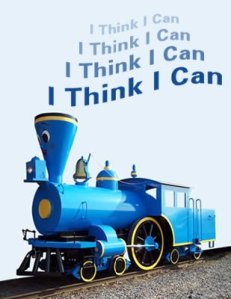 Think You Can, or Making a Living as a Musician, from the NEC’s Entrepreneurial Musician Blog
Think You Can, or Making a Living as a Musician, from the NEC’s Entrepreneurial Musician Blog
When it comes to careers, musicians learn to improvise
Alexis Del Palazzo on Participatory Audiences
Is Classical Music too elitist or not enough?
Astrid Baumgardner’s latest, Finding Passion in Your Life’s Work: Do What You Love
Just live Your Own Damn Life, from the Sun Magazine
Michael Morgan of the Oakland East Bay Symphony pushing programming in new directions
Musical America’s musicians of the year
The success of the LA Philharmonic
The orchestra’s guide to looking cool
Photos from Mahler Remixed from the New England Conservatory , a creative performance featuring creative arrangements
From the blog String Visions, Breaking Boundaries with Aaron Dworkin
Coaching Advice from the author of the Talent Code: Talk less, Matter more
Some Alexander Technique observations
Check out Yoga Nidra, thanks to John Ranck who shared this on the FLUTE list
Video of the Week:
Ian Anderson of Jethro Tull with orchestra, thanks Flutronix for passing this on!
Showing Up
September 28, 2011
By Ariel Friedman, guest blogger
This post was originally published at NEC’s entrepreneurial musicianship alumni blog on 9/28/2011, and is reposted here with permission from the author. IPAP thanks Ariel Friedman for sharing this post.
Now that school has started again and I’m not there, I’ve been thinking about how to commit to continued creative growth without the container of school. I am a classical cellist gone folk cellist gone aspiring jazz cellist, pianist, singer, and songwriter and now that I’ve graduated, one might think I’d have all the time in the world to hone these skills. On the contrary, my days are filled with errands, gigs to play, lessons to teach, and a seemingly endless flow of email-answering and planning. I feel grateful for my active touring and teaching schedule, but I continue to come up against this question: how can I make my own music and wellbeing a priority?
I think it is the constant striving for creation that propels us forward in this world. No matter how many times I practice a new standard or Popper etude, nothing compares to the satisfaction of writing a piece of music, or adding a new verse to a song in progress. It is this act of tapping into something “beyond the margins of the self,” as Mary Oliver puts it, that I am after—this elusive quality, combining concentration with subconscious, and the time and energy it takes to access it—and what continues to fall to the bottom of my to-do list.
For most of my life, I have struggled with feelings of powerful guilt if I do not somehow improve myself in a given day. It’s only been within the last three years that I’ve begun to access the part of me that creates music, and now there is a new level of commitment at stake. Practicing is still something I check off the list. But songwriting? The creation of new, deeply personal and relevant art? Do these things have a place on my checklist?
Yes.Yes yes yes.
And that’s because it is about showing up. It is about waking up in the morning, doing yoga, eating breakfast, and writing. If I do not show up to my work, to that higher self beyond my own margins, then that self will disappoint me. Writing, in whatever form, is not about waiting for inspiration to strike. In the opening line of my favorite essay by Mary Oliver, she writes, “If Romeo and Juliet had made appointments to meet, in the moonlight-swept orchard, in all the peril and sweetness of conspiracy, and then more often than not failed to meet—one or the other lagging, or afraid, or busy elsewhere—there would have been no romance, no passion, none of the drama for which we remember and celebrate them.” Writing takes place when I show up, whether or not I am inspired, day after day after day.
We are a culture who shows up: for our jobs, for our students, our teachers, our families, our partners, our friends. We show up at the registry of motor vehicles when our license has expired. We show up at the grocery store when we’re out of bread. But how often do we show up for ourselves?
I don’t think this answer will come to me in the bright flash of revelation. By now, it is slowly dawning on me that there will never be a day when I say, “Now I am done practicing. Now I have arrived.” If I did arrive (wherever that is), life would be awfully boring. Instead, I am in pursuit of pursuit. For the rest of my life I will be navigating how to write “Show Up For Self” on the top of my daily list, just as I will be negotiating what it means and how to approach the process of creating meaningful music (while, ever-hopeful, simultaneously practicing all of my instruments and genres). The first, and hardest, thing I have learned is that patience must be involved: patience with the writing process and patience with myself, for the myriad of days when I just don’t show up.
In this monthly blog post, I hope to continue to reflect on my feelings about this issue in relation to my current experiences outside the walls of any institution.
You can read more from Ariel and other authors writing about Entrepreneurial Musicianship at http://necentrepreneur.posterous.com/


